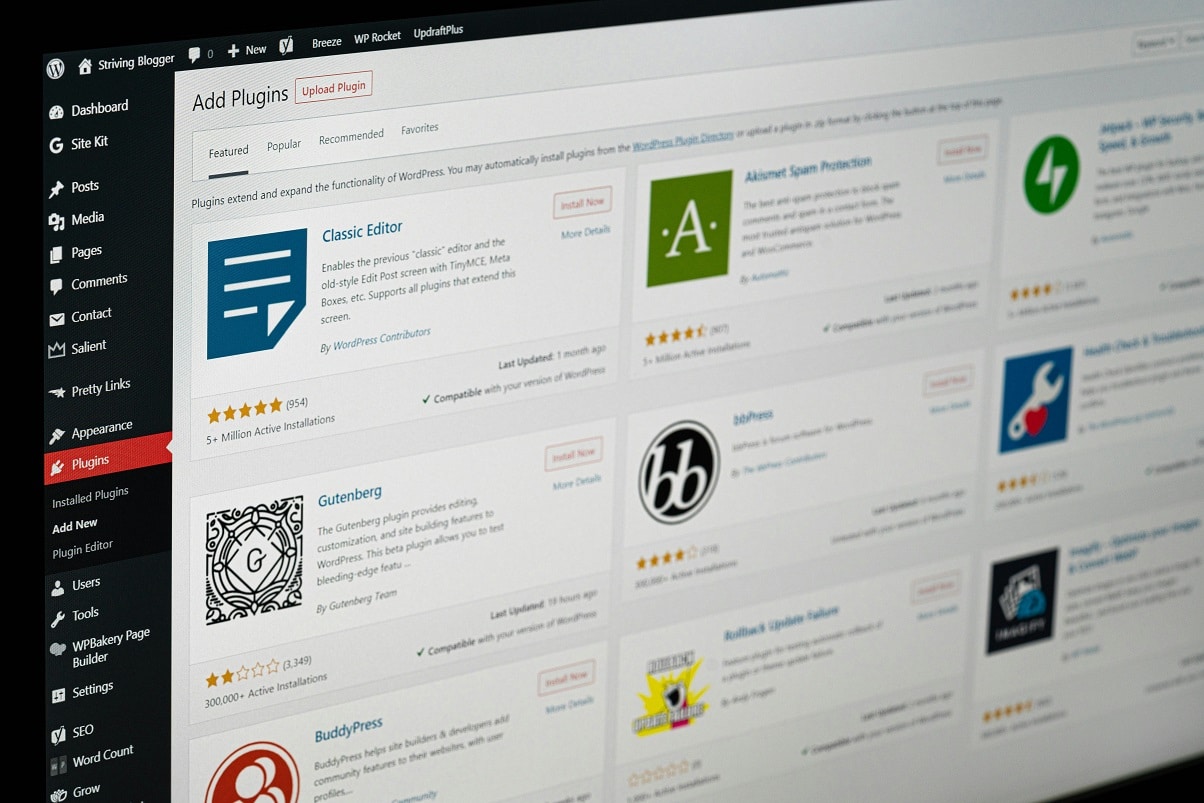Which plug-ins do you need for WordPress?
Plug-ins and WordPress are often mentioned in the same sentence, and for many they are an indispensable part of running a WordPress website. In this blog post, we will discuss what plug-ins can do for your WordPress website, how to install them, and provide some recommendations that can improve or add to the functionality of your website.
What are plugins?
Plugins are software components that you can add to your WordPress website to add extra functionality or enhance existing functionality. Think of plugins as building blocks that you can use to improve and extend your website without having to code it yourself. There are thousands of free and premium plugins, each designed to perform a specific task, such as improving search engine optimization, increasing the speed of your website or adding a contact form.
How to install a plugin?
Installing a plugin in WordPress is very simple: log in to your WordPress dashboard: Go to yourdomain.co.uk/wp-admin and log in with your username and password. Go to "Plugins": Click on "Plugins" in the menu on the left-hand side and then on "New plugin". Search for the desired plugin: Use the search bar at the top right to search for the desired plugin.
For example, search for "SEO" to find plugins for search engine optimization. Install and activate: Click on "Install now" for the plug-in of your choice.
Once installed, click on "Activate". Your plug-in is now ready for use. Depending on the plug-in, you may need to make additional settings.
Always keep your plug-in list to a minimum and up to date
Plug-ins can be a good addition, but it is important that you keep your plug-in list as small as possible. Too many plug-ins can slow down your website and make it more vulnerable to security risks. Therefore, only install the plug-ins that you really need and remove plug-ins that you no longer need. It is also important that you keep your plug-ins up to date. Regular updates not only improve functionality, but also provide security patches that protect your website from security vulnerabilities. In the recent update to WordPress 6.6, the ability to roll back plugin updates was added, allowing you to leave automatic plugin updates enabled by default and quickly revert to a previous version of the plugin if a problem arises.
Recommended plugins
Here are some plugins we recommend to improve the functionality of your WordPress website: Caching plugin: A caching plugin such as W3 Total Cache or WP Super Cache helps to improve the loading speed of your website by creating static versions of your pages.
This ensures faster loading times and a better user experience. SMTP authentication plugin: Without a suitable SMTP authentication plugin, such as WP Mail SMTP, you may not be able to send emails from your website. This plug-in ensures that your emails are delivered reliably by using an SMTP server. We require use with our SMTP host, smtp.myhostingpartner.co.uk, with a mail address created under your package.
This is to prevent abuse of our IP addresses. SEO plugin: For search engine optimization, The SEO Framework is an excellent choice. This plug-in helps you to make your website easier to find by informing search engines about the content and structure of your website.
Always be critical of any plug-in
When choosing plug-ins, it is important to be critical. Always check the reviews and experiences of other users before installing a plug-in. Pay attention to how often a plug-in has been updated; plug-ins that are updated regularly are often more secure and reliable.
Avoid plug-ins that have not been updated for a long time, as they may not be compatible with the latest version of WordPress and are prone to security issues. By choosing the right plugins carefully and keeping your list minimalist and up-to-date, you can get the most out of your WordPress website without sacrificing speed or security.
